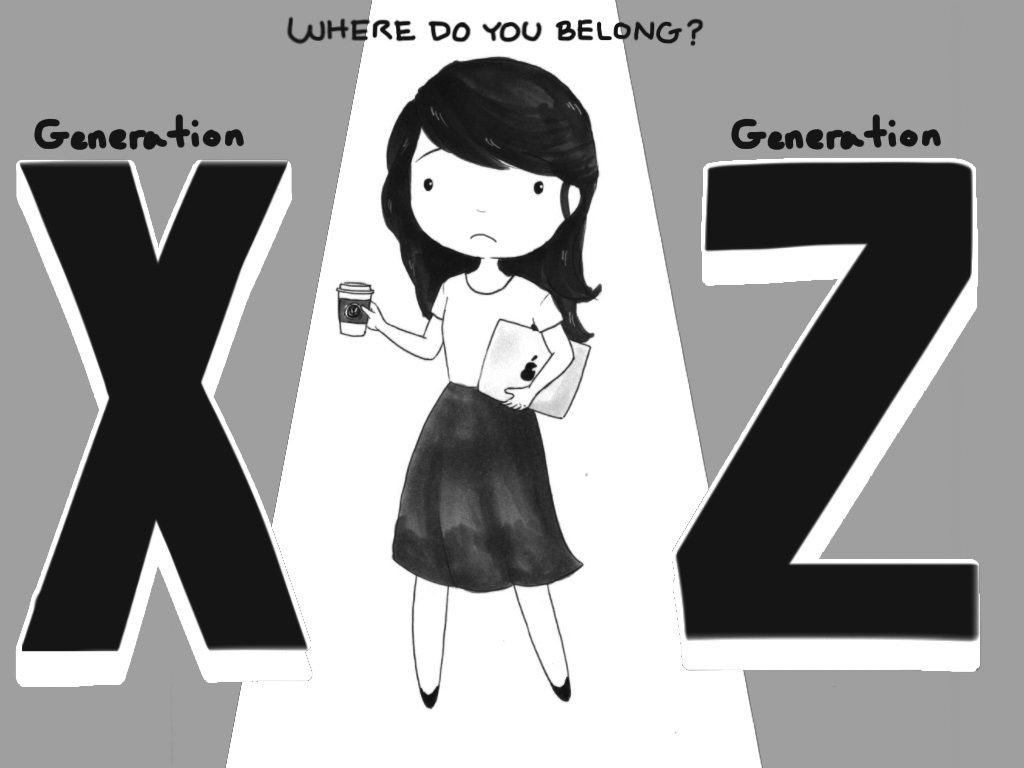
When asked if they thought of themselves as being a member of the millennial generation, students at Aragon largely responded with a resounding “no.” As junior Kelvin Yang elaborates, “I hear about millennials in the news, but they always seem to be referring to people who can vote, participate in the workforce, and purchase goods independently, so there is definitely a separation between myself as an individual and what I see as a millennial.”
Current high schoolers are not definitively part of a single generation, as they sit right on the border between millennials and the conceptual Generation Z.
This does not mean generations are purely arbitrary, for there are other elements that distinguish American generations. The massive population of the Baby Boomers, the strife that surrounded the silent generation, the instability of the Cold War encountered by Generation X, and dramatic events like the bombing of the World Trade Center or the Great Recession that characterized the environments millennials grew up in, all help to diversify the generations.
Additionally, shifts in societal norms have played an increasing role in the differentiation of generations. A significant contributor, the exponential nature of technological advancement leads to an ever quickening evolution of lifestyle and more pronounced differences between age groups.
Furthermore, demographics are changing at an increasingly rapid rate. According to the U.S. census, from 2000 to 2010, the Hispanic population grew at nearly four times the overall population, and the number of people identifying themselves as mixed race shot up, nearly doubling. These increases represent an escalating diversification of the population and arguably, increased cultural familiarity and acceptance from when states used to ban interracial marriage.
While racial and cultural diversity might not seem extremely impactful, according to a Stanford study in which groups of different racial distributions were confronted with a novel problem to solve, groups with a diversity of ethnicities scored higher on a measure of integrative complexity, or the ability to utilize multiple perspectives in coming to a solution. For millennials, an increasing exposure to different groups of people makes interactions with diverse individuals more comfortable. With a greater acceptance, millennials have the potential to have exposure to a more expansive worldview, leaving them more capable of diverse thought.
Along with the diversification of the population, the millennial generation has been marked by the introduction of new methods to facilitate the expression of one’s thoughts. Senior Eric Chen says, “Social media is a useful medium that enables me to carry out friendly interaction with others on a consistent basis.”
The increasing familiarity with social media has changed interaction and provides a new way to form individual and group identity. It has currently evolved to become a medium that plays a large role during the formative years of those currently in high school and is now accepted as the norm.
However, freshmen Helen Lu says, “Social media leaves something lacking. I enjoy physically being around my friends. Online, communication is a series of responses, as opposed to a real-time conversation.”
Accordingly, although the online migration represents an evolution of social interaction, it has not replaced physical interaction. Thus, millennials are in an interesting position — capable of utilizing the ever increasing abilities of technology while also making an effort to balance interaction with the physical world.
Then again, the individuals of a generation are unique and have more immediate concerns than embodying the generalization of an age group, raising the question of why such a generalization is necessary. According to Katie Wallace, a 72-year-old former economics professor who grew up in Liverpool, England, “Marketers want to appeal to a large group of people with as many products as they can … sometimes hoping to establish their product within a group, so that it comes to be closely associated with the group, driving up demand and profits. This is no different for generations throughout time, and companies want to tap into any generational unity and capitalize off it.”
Moving on from definitions, Wallace says,“All empires collapse, even America. It’s just a matter of when, making me perpetually concerned about the youngest generation.”
Continual change leaves the future seemingly clouded in mystery. No matter the typecast, the youngest generation will one day take the reins of society and lead, just as their predecessors did.




